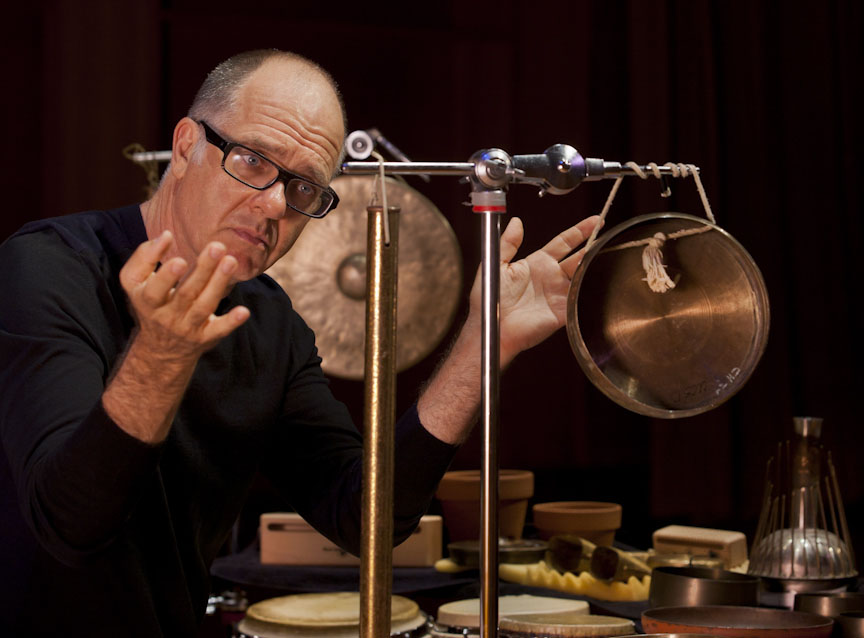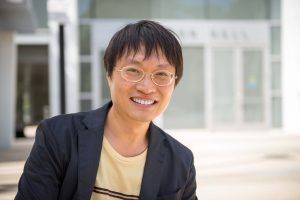UC San Diego Celebrates the Music and Influence of Chou Wen-Chung
Under the direction of Steven Schick, UC San Diego’s bravura contemporary ensemble red fish blue fish offered in their Wednesday concert a fitting homage to the influential late Chinese composer Chou Wen-Chung. Opening with his 1971 Echoes from the Gorge, a bracing, abstract tone poem for four virtuoso percussionists, the ensemble set a high bar for evening’s musical fare.

Steven Schick [photo courtesy of the performer]
Chou came to the United States at age 23 in 1946, studied with several luminary East Coast composers and became both student and disciple of the legendary iconoclast Edgard Varèse. He spent his career teaching at Columbia University, mentoring an impressive list of notable composers from Tan Dun of “Crouching Tiger, Hidden Dragon” fame to UC San Diego’s own Chinary Ung.
Appropriately, Rebecca Lloyd-Jones followed the Chou work with Chinary Ung’s “Cinnabar Heart” from 2012 for solo marimba. In this short work, the ebb and flow of a series of scintillating rapid flourishes is complemented by a feathery vocal incantation sung by the instrumentalist.
Assisted by the percussionists Michael Jones, Matthew LeVeque and Rebecca Lloyd-Jones, Steven Schick led “Trans” by Lei Lang, another Chinese composer

Lei Liang [photo courtesy of the artist]
American composer Michael Pisaro’s 2004 “ricefall” uses the sound of falling rice kernels to suggest falling rain. Seated in four geometrically perfect rows each with four musicians each, the performers dropped differing amounts of rice from bowls in their laps on a variety of surfaces at their feet. At times it was easy to conjure the sonic reality of rain falling on the tin roof of a tropical hut. The amount and speed of rice dropped at any given moment determined the volume and density of the sound. About six minutes of this clever composition was just the right amount of exposure.
Schick closed this homage with a recording of Varèse’s iconic 1958 “Poème Electronique,” written for the Phillips Pavilion at the 1958 Brussels Worlds Fair. Hearing this piece brought back nostalgic memories of experiencing this piece in a music history class just a few years after it appeared at the Worlds Fair. Some of these sounds—sirens, buzzers, tolling bells, chords than could have come from a Hammond organ—sounded quaint and naive compared to the complex sonic collages that contemporary synthesizers produce. But there was also something exciting about recalling how bold Varèse’s vision was more than half a century ago.
UC San Diego’s Division of Arts and Humanities presented red fish blue fish in the Conrad Prebys Music Center Experimental Theatre on February 19, 2020.

Ken Herman, a classically trained pianist and organist, has covered music for the San Diego Union, the Los Angeles Times’ San Diego Edition, and for sandiego.com. He has won numerous awards, including first place for Live Performance and Opera Reviews in the 2017, the 2018, and the 2019 Excellence in Journalism Awards competition held by the San Diego Press Club. A Chicago native, he came to San Diego to pursue a graduate degree and stayed.Read more…
